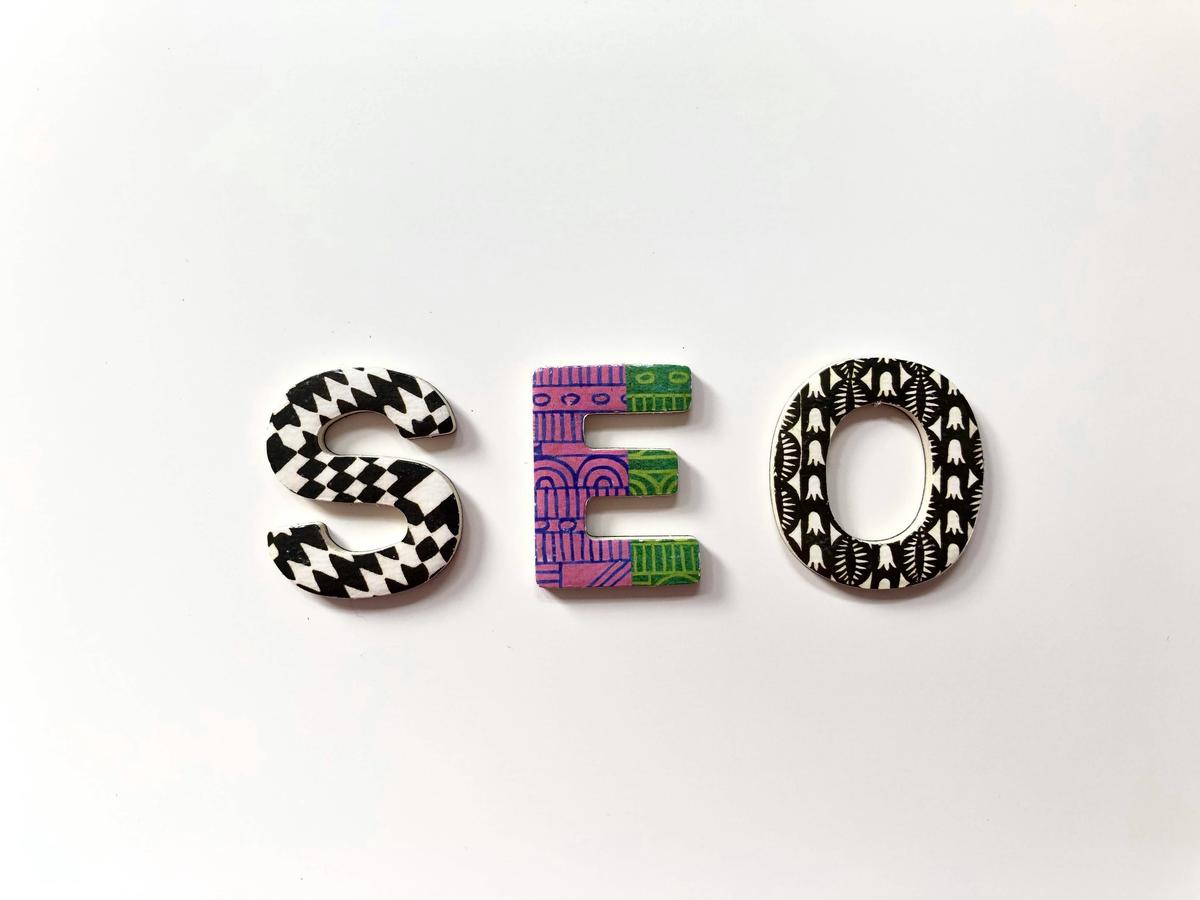The realm of search engine optimization (SEO) is witnessing an unprecedented revolution as Artificial Intelligence (AI) takes center stage, steering the digital marketing industry into uncharted territories of data-driven success. This shifting paradigm, from the cozy familiarity of traditional SEO to the intriguing complexities of AI-infused strategies, is not just altering how we optimize for search engines but also redefining the very fabric of online visibility and user interaction. From predictive analytics to search intent dissection and user experience personalization, AI is carving out a formidable niche in the SEO landscape. As we embark on this journey through the intricate dance of algorithms and analytics, prepare to uncover the monumental contributions of AI to SEO and how it’s quietly reshaping the way businesses connect with their audience online.
Overview of AI in SEO
AI Revolutionizes SEO: A Deeper Look into the Transformative Impact
Artificial Intelligence (AI) is rapidly transforming the landscape of Search Engine Optimization (SEO), paving the way for innovative strategies that ensure websites rank higher and reach their target audience more effectively. The integration of AI into SEO is not just a trend – it’s a game-changer that’s altering the digital marketing field in profound ways.
Today’s SEO isn’t just about keyword stuffing and backlink farming; it’s a sophisticated arena where AI tools play a pivotal role in content creation, keyword research, and user experience optimization.
Crafting Optimized Content with AI
Content is the cornerstone of SEO, and AI systems are now capable of generating highly optimized and engaging material. AI-powered content tools analyze user engagement and search patterns to suggest topics that resonate with audiences and predict the performance of content even before it’s published. These insights enable SEO professionals to make data-driven decisions, ensuring their content is both relevant and authoritative.
Moreover, AI doesn’t stop at topic suggestions. It delves into content structure, optimizing headers, and meta descriptions to align with search engine algorithms, thus increasing the probability of higher search rankings.
Enhanced Keyword Research with Deep Learning
Keyword research is evolving thanks to AI’s deep learning capabilities which scrutinize search queries for intent rather than mere string matches. This advancement allows SEO strategies to be tailored to user behavior, factoring in nuanced semantic variations of keywords. AI tools uncover patterns in how people search, identifying clusters of related terms and long-tail phrases that may have been overlooked using conventional methods.
Personalization and User Experience
AI takes personalization in SEO to the next level. Search engines aim to deliver tailored results to users, and AI helps achieve this by analyzing past online behavior to predict future needs. This not only contributes to a more customized search experience but also enables websites to optimize their content to match specific user intents, improving engagement rates and time on site.
Similarly, AI-driven analytics tools are improving the user experience by pinpointing website bottlenecks, suggesting design changes, and automatically adjusting content display based on user device, location, and other factors. Search engines reward sites that provide exceptional user experiences, making AI an indispensable ally in climbing the SEO ranks.
Link Building and AI’s Analytical Prowess
AI’s influence extends to the realm of link building, where its analytical capabilities provide comprehensive backlink profiles. It can identify high-quality link opportunities and assess the value of potential links with unprecedented precision. By evaluating the relevance and authority of linking domains, AI helps in sculpting a website’s link ecosystem to be robust and beneficial for SEO.
Predictive SEO and Competitive Analysis
As forward-looking technologies, AI systems don’t just react but predict future trends. They process vast amounts of data to forecast shifts in search behaviors, enabling businesses to stay ahead of the curve. Competitive analysis through AI equips SEO practitioners with insights into their rivals’ strategies, highlighting gaps and opportunities for optimization.
In conclusion, AI is revolutionizing SEO by injecting intelligence at every step of the process – from content creation to predictive analytics. It’s empowering SEO experts to craft more effective strategies, personalize user experience, and stay a step ahead in an increasingly complex digital landscape.
With the onset of AI, SEO has become a more intricate and dynamic component of digital marketing, setting the stage for an era where both search engines and users demand more intelligent, responsive, and personalized online experiences. As the evolution continues, embracing AI in SEO practices is not just an option but a necessity for those who wish to excel in the digital space.

Top AI-Powered SEO Tools
Harnessing Artificial Intelligence in SEO: A Deep Dive into Advanced Tools
In the realm of SEO, the pace of innovation never falters, and artificial intelligence (AI) has emerged as the linchpin of modern strategies. Leading the charge are AI tools that redefine search engine optimization by harnessing complex algorithms and massive data sets. These instruments offer unparalleled precision in tailoring content and strategies to the evolving landscape of search algorithms.
One such trailblazing tool is MarketBrew. This AI-powered SEO testing platform simulates search engine algorithms to provide granular insights into how various factors impact search engine rankings. MarketBrew dissects the search space to recommend tangible adjustments, shining a light on the often-mysterious inner workings of search engine behaviors.
Another key player is BrightEdge, which capitalizes on AI to customize real-time recommendations for SEO tactics. By examining search trends and data patterns, BrightEdge generates actionable insights that ensure content resonates with the intended audience, hence, bolstering its search engine performance.
Moving on to the territory of content effectiveness, Clearscope steps in. Designed to refine content relevance, this tool applies AI to analyze top-performing content and ascertain the vital elements for ranking. Clearscope aids content creators in crafting materials that are not only engaging but also SEO-compliant, guaranteeing that the output aligns with search engine expectations.
AI is not just about text, however. Visual content is gaining traction, and tools like GumGum come to the forefront. By employing computer vision and neural networks, GumGum interprets images and videos to optimize them for better visibility in search engine results. These AI-driven insights ensure that all facets of digital content are primed for SEO success.
Moreover, CanIRank offers a distinct blend of AI-guided advisory and DIY SEO. Rather than general guidelines, this tool yields specific, data-backed advice catered to a site’s unique profile. It steers the optimization process with precision, tailoring strategies that let websites climb the SERP ladder with confidence.
Lastly, one cannot discuss AI in SEO without mentioning PaveAI. This analytics solution culls through swathes of data, dispensing with inconsequential noise to highlight key performance insights. PaveAI empowers businesses to make informed decisions, as it distills complex analytics into clear, actionable directives.
While these AI tools wield considerable might in shaping SEO tactics, they are not infallible. They serve as aides, not replacements, for SEO professionals. Mastery over AI tools in SEO is becoming increasingly crucial for those determined to maintain an edge in a digital ecosystem that grows more competitive by the minute. As SEO continues to evolve, adapting and leveraging these AI innovations will be the hallmark of a successful online presence.

AI for Keyword Research & Analysis
Harnessing AI for Surgical Keyword Selection and Trend Forecasting
In the fast-paced world of online content, precision is key, and AI tools are reshaping the way marketers hone in on the right keywords. Gone are the days of guesswork and time-intensive keyword research; AI algorithms now dissect search patterns with a surgeon’s precision, enabling content to resonate more effectively with target audiences.
The integration of natural language processing (NLP) within AI tools serves as a driving force in semantic search, going beyond the basic keywords to understand context, intent, and nuances of language. This advancement allows for the identification of long-tail keywords that reflect specific queries, capturing the increasingly conversational nature of search as voice search gains traction.
Real-time search data, processed by AI, is another boon for marketers. Delving into the current buzz, AI tools track keyword performance, spotlight rising trends, and even forecast the potential of keywords, empowering decision-makers to act swiftly. This aspect is crucial in the dynamic digital landscape where timing can mean the difference between capturing audiences and fading into obscurity.
The capacity of AI to analyze vast datasets extends to monitoring competitor keyword strategies as well. By scrutinizing competitors’ content, AI delivers insights into content gaps and opportunities for differentiation, paving the way for strategic decisions that bolster a company’s search engine presence.
To navigate the labyrinth of local SEO, AI tools are indispensable. They dissect regional search trends and vernacular, tailoring recommendations to propel local visibility in SERPs. This micro-targeting is particularly valuable for businesses aiming to cement their local market presence.
With the constant evolution of search engine algorithms, AI’s predictive capabilities maintain a forward-looking approach. They anticipate shifts in search engine dynamics, offering recommendations to future-proof SEO strategies—essential for maintaining and enhancing page rankings over time.
Ultimately, the embrace of AI in keyword research and analysis reflects a strategic inflection point for SEO practices. Through leveraging AI’s machine learning and broad-spectrum analysis, content creators and marketers optimize their visibility in the ever-growing digital expanse while navigating its complexities with informed confidence. It’s an era of unprecedented SEO precision, with AI at the helm, guiding and refining the journey of keywords from conception to conversion.

Integrating AI Tools with SEO Strategy
Maximizing SEO Effectiveness: Incorporating Artificial Intelligence for Superior Results
In the ever-evolving realm of search engine optimization (SEO), artificial intelligence (AI) has emerged as a revolutionary force, offering capabilities that transcend traditional methods. Leveraging AI, SEO strategies can achieve unparalleled precision, adaptability, and foresight. To remain competitive, it is imperative to integrate these sophisticated AI tools into an existing SEO blueprint seamlessly.
Streamlining Content Delivery with AI Scheduling
An imperative element in SEO is the timing and distribution of content. AI-powered scheduling tools assess user engagement and suggest the optimal timeframes for publishing. By analyzing patterns and behaviors, these systems ensure that content reaches the intended audience when they are most receptive, boosting visibility and interaction.
Enhancing User Experience with Intelligent Design Algorithms
The significance of user experience (UX) in SEO cannot be overstated. AI algorithms are now equipped to evaluate website interfaces, proposing refinements that cater to user preferences, reduce bounce rates, and extend session durations. These intelligent design tweaks not only uplift the UX but also bolster SEO rankings by aligning with search engines’ emphasis on user satisfaction.
Optimizing Metadata for Maximum SERP Impact
Metadata plays a pivotal role in how content is understood and ranked by search engines. AI tools excel in fine-tuning metadata components, such as title tags and meta descriptions. With AI’s assistance, creating compelling, keyword-rich metadata that enhances click-through rates while remaining compliant with SEO best practices is no longer a daunting task.
Innovating with AI-Powered Voice Search Optimization
Voice search is transforming SEO, and AI’s role in optimizing for this trend is indispensible. By analyzing natural language queries, AI tools help tailor content to suit the conversational tone and intent of voice search. This adaptation is vital for capturing traffic from this growing segment of users who favor voice search’s convenience.
Employing Structured Data Markup for Enhanced Indexing
Structured data markup is instrumental for search engines to comprehend and index content effectively. AI applications simplify this process by automatically generating structured data snippets. This under-the-hood work is crucial for enhancing content visibility and enabling rich results in the search engine results pages (SERPs).
Tailoring Global SEO Strategies Through AI-Assisted Localization
Global SEO requires an understanding of linguistic and cultural nuances across different regions. AI-powered localization tools transcend language barriers, ensuring that content resonates with diverse audiences. These tools not only translate but also adapt SEO elements to align with regional search patterns, thereby maximizing global reach.
AI-Powered A/B Testing for Data-Driven SEO Decisions
A/B testing is essential for gauging the efficacy of different SEO strategies. AI elevates this testing by swiftly analyzing vast data sets to provide conclusive insights. This AI-augmented A/B testing leads to informed decisions that fine-tune SEO tactics for optimal performance.
The symbiosis of AI and SEO heralds a paradigm shift where the application of intelligence, both artificial and human, shapes the future of digital marketing. Integrating these advanced AI tools into an existing SEO strategy grants businesses the agility to not only meet but also predict and act upon the ever-changing demands of the digital landscape. With AI as a copilot, the journey towards SEO supremacy becomes more targeted, efficient, and results-driven, without the need for a summarization to underscore its impact.

Future Trends in AI for SEO
AI-Enhanced Search Intent Parsing: The Next Frontier in SEO
As the digital landscape evolves, so does the necessity for more nuanced search engine optimization (SEO). The future points toward AI’s role in deciphering user search intent with unprecedented precision. Artificial intelligence is poised to refine the understanding of queries by analyzing patterns and context, going beyond the rigid keyword matching of yesteryears.
Search algorithms, powered by AI, are set to become sophisticated enough to interpret the subtleties of human language, recognizing nuance, sentiment, and even the purpose behind a search. This progression will benefit both users, who will receive more relevant results, and businesses looking to connect with their target audience at the exact moment their services are needed.
Dynamic Algorithm Tailoring for Optimal SEO Strategies
Anticipate a surge in AI systems that can adjust SEO strategies in real-time. These AI tools will monitor search engine algorithm updates and modify optimization tactics—a boon for staying ahead in the SEO game. The days of reactionary changes to SEO plans will fade as predictive analytics take the helm, allowing for proactive adjustments that keep content continuously aligned with the latest search engine favorabilities.
AI and Multimodal Search: A Fusion for the Future
Multimodal search, encompassing text, voice, image, and even video queries, is on its ascent. AI’s integration into SEO practices will ensure that optimization strategies keep pace with this trend. AI algorithms will optimize content for multiple formats, ensuring a coherent presence across varied search modes. This holistic approach to SEO acknowledges the growing diversity in user search behaviors, catering to a wider audience and their preferred search methods.
The Emergence of AI-Curated Content Ecosystems
Looking forward to a world where AI not only helps create and optimize content but also curates entire ecosystems based on audience behavior. By analyzing extensive datasets on user engagement and content performance, AI will tailor content libraries to personify user preferences. This organization of content into responsive, self-evolving ecosystems will not only improve SEO but will also foster deeper engagement with audiences across digital platforms.
Ethical SEO and AI Transparency
One should not overlook the ethical dimension of AI in SEO. As search engines prioritize transparency and fairness, the use of AI in SEO will likely be held to similar standards. Businesses will need to ensure their AI-driven SEO strategies comply with ethical guidelines and promote transparency in how content is created, optimized, and presented. This accountability will be crucial in maintaining credibility with search engines and users alike.
Ultimately, the ascendancy of AI within SEO contexts is an invitation to marketers and businesses to innovate continuously. It’s not merely about keeping up with trends but about actively shaping them. As artificial intelligence becomes increasingly sophisticated, its application in SEO opens doors to creating more relevant, accessible, and engaging online experiences for users around the globe.

The dynamic interplay between AI and SEO is a narrative of continuous evolution, one that deftly weaves together the threads of technical innovation and human insight. As we look to the horizon, the roadmaps for digital marketing grow ever more intertwined with the intelligent algorithms that dictate the future of search engine landscapes. The mosaic of trends unfolding before us promises a future where AI not only enhances SEO strategies but becomes an indispensible pillar of them, driving us towards a future where every search is understood, every relevance is discovered, and every online experience is tailor-made. Navigating this future will require adaptability, foresight, and an unwavering commitment to the symbiotic relationship that is AI and SEO.




